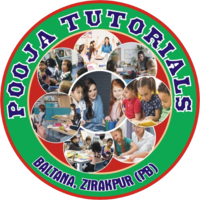In these days of overwhelming social media, everyone badly depends on it. Here in this article, we are going to explore the positive and negative impacts of social media on teenagers.
Table of Contents
ToggleNowadays, it has become a fundamental part of our daily lives. It provides a world full of possibilities at our fingertips, from watching movies while keeping up with trends to sharing photos and communicating with friends. Teenagers use social media more often than any other age group. They often consider it an important aspect of their identities on it, as they spend so much time scrolling through platforms like Instagram, Snapchat, and TikTok.
It has so many benefits, like establishing relations and allowing for creative freedom of expression, but it also has negative impacts. Teenagers’ sleep patterns, academic performance, mental health, and self-esteem can all be influenced by this digital world. Parents, teachers, and even teenagers themselves should be conscious of the positive and negative effects on their daily activities. We’ll go into much more detail about the consequences in the following article and offer a few suggestions for ethical usage.
Positive Impacts of Social Media on Teenagers
Even while it has an adverse record, it’s important to keep in mind that it has numerous benefits, especially for teenagers. These platforms may encourage learning, boost creativity, and encourage the creation of healthy relations when used wisely. Some of the methods that social media can help teenagers in both their personal and academic lives are discussed below.
- Connectivity: By using social media, they can maintain interactions with their friends and family. Through communication, video chats, and shared updates, it allows others to maintain connections and stay in touch with loved ones, even if they live far away.
- Self-expression: They may express their views and emotions more easily through social media. It helps youngsters grow confidence and express their thoughts, ideas, and experiences.
- Building Communities and Support Groups: Teens can use the internet to interact with others who share their interests or who feel isolated. Social media, whether it be through hobby groups, educational forums, or mental health guidance, can make them feel less lonely and more understood.
- Opportunities for Career Growth and Awareness: Through influencers, professionals, and organizations on social media sites like LinkedIn, YouTube, and even Instagram, many teenagers are introduced to job options, skills, and real-world perspectives at a young age. This exposure motivates youngsters to establish goals and helps them think more broadly.
- Empathy and Social Awareness: Teens can learn about numerous cultures, real-life stories, and global issues through social media. They may grow into more intelligent and compassionate individuals as a consequence of growing sympathy, comprehension, and a sense of responsibility to society.
“Social media is not just a spoke on the wheel of marketing. It’s becoming a powerful part of the wheel.” – Chris Brogan
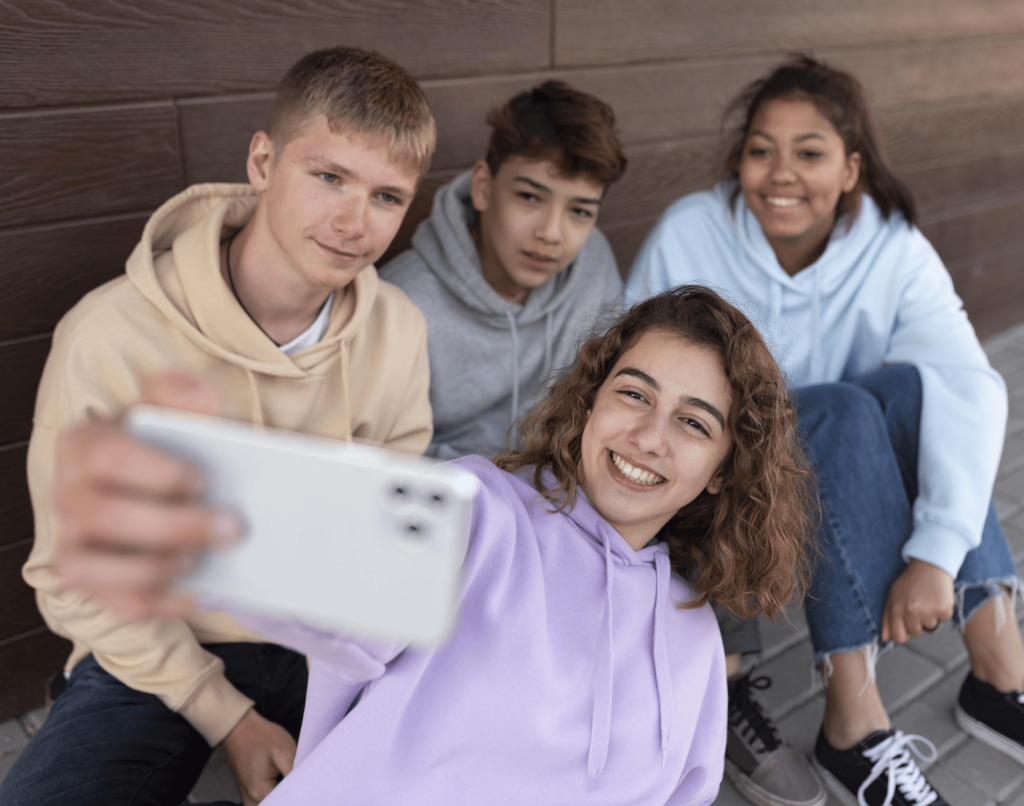
Negative Impacts of Social Media on Teenagers
Social media has multiple benefits, but it comes with certain drawbacks that may harm teenagers. Their emotional and mental wellness may be affected by excessive use, exposure to unrealistic content, and online pressure. To make it easier for teenagers, parents, and educators to promote healthier and more mindful social media habits, it is essential to understand this challenge.
- Cyberbullying: Teenagers can face psychological issues as a result of cyberbullying, a serious concern on social media. Teenagers who are exposed to continuous online harassment or negative comments can feel nervousness, sadness, or even a decrease in confidence.
- Addiction: Addiction to social media is a serious issue that can cause physical as well as psychological concerns for youngsters. Anxiety or restlessness when disconnected, headaches, eye strain, and a lack of physical activity may all arise from spending too much time online.
- Sleep deprivation: Teenagers who are spending time on social media can suffer from sleep deprivation, which is harmful to their physical and emotional well-being. Teenagers may find it tougher to pay attention, stay motivated, and maintain mental wellness during the day as a result of late-night scrolling and persistent notifications that conflict with their sleep patterns.
- Low Self-Respect: Teenagers who are constantly interacting with filtered or manipulated photos and idealized living on social media may start comparing themselves to other individuals. A lack of confidence, poor body image, and feelings of inadequacy can result from this.
- Distraction from Academics: The capacity of teenagers to concentrate can be seriously compromised by frequent notifications, messages, and the desire to scroll endlessly. It ultimately impacts their academic performance by reducing study time and productivity.
- Staying Amid inappropriate Content: Teenagers can come across illicit material that is violent, visual, or misleading. Their emotional and psychological development may be affected by this exposure in the absence of adequate guidance or content filters.
- Social isolation: Ironically, loneliness in real life can occur from wasting too much time on social media. Teenagers might spend less time enjoying outdoor activities and talking in person, both of which are essential to an infant’s healthy social development.
“Social media is a powerful tool, but it can also be a powerful destroyer.” – Preston Smalley
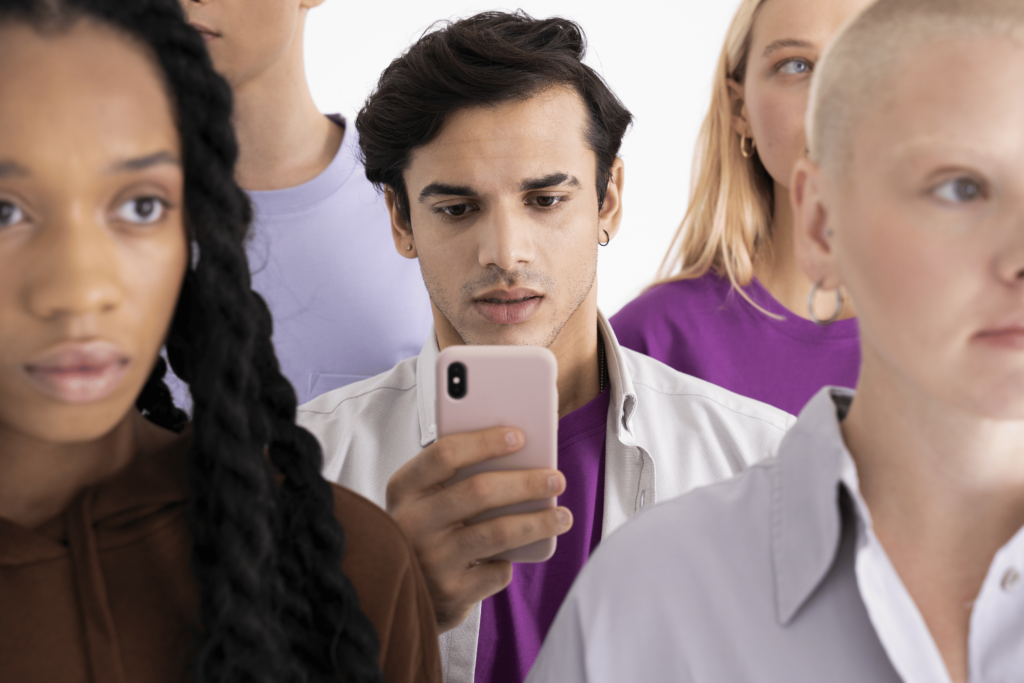
Impacts of Social Media on Teenagers' Mental Health
Teenagers’ mental health is another topic wherein the impacts of social media are prevalent. Constant comparison, the pressure to maintain a flawless image, fear of missing out (FOMO), and exposure to negative feedback can all take a toll on their emotional well-being. This may ultimately result in anxiety, worry, sorrow and a reduction in confidence:
- Depression and Anxiety: Depression and anxiety can result from extensive social media use. Teenagers’ psychological balance may be disturbed if they continue to monitor the likes and comments on their posts or receive negative feedback. They may become sad, isolated, and mentally anxious as a result.
- Low Self-Respect: Teenagers who see how others live on social media can experience low self-esteem. By observing precisely edited photos, luxurious lifestyles, and achievements, youngsters start to compare their lives to their own, which weakens their sense of worth and causes them to feel inferior.
- Fear of Missing Out (FOMO): Teenagers feel that they are missing out on something important when they see their friends sharing regarding events, excellent instances, or activities on social media. They can feel restlessness, discomfort, and sadness as an outcome of these emotions, which is commonly referred to as FOMO.
- Social Isolation: Excessive social media use decreases interpersonal connections. Teenagers minimize face-to-face conversations with their family and friends as an outcome, which may result in emotions of loneliness and emotional isolation.
- Issues with Concentration and Attention: They are immediately distracted by phone notifications and frequent scrolling. This decreases their attention span and has an immediate effect on their reading, focused attention, and reasoning abilities, which can be harmful to their performance in school as well as their personal growth.
“Social media has become a major influence on the lives of young people, and it’s essential to understand its impact on their mental health.” – Dr. Dan Siegel
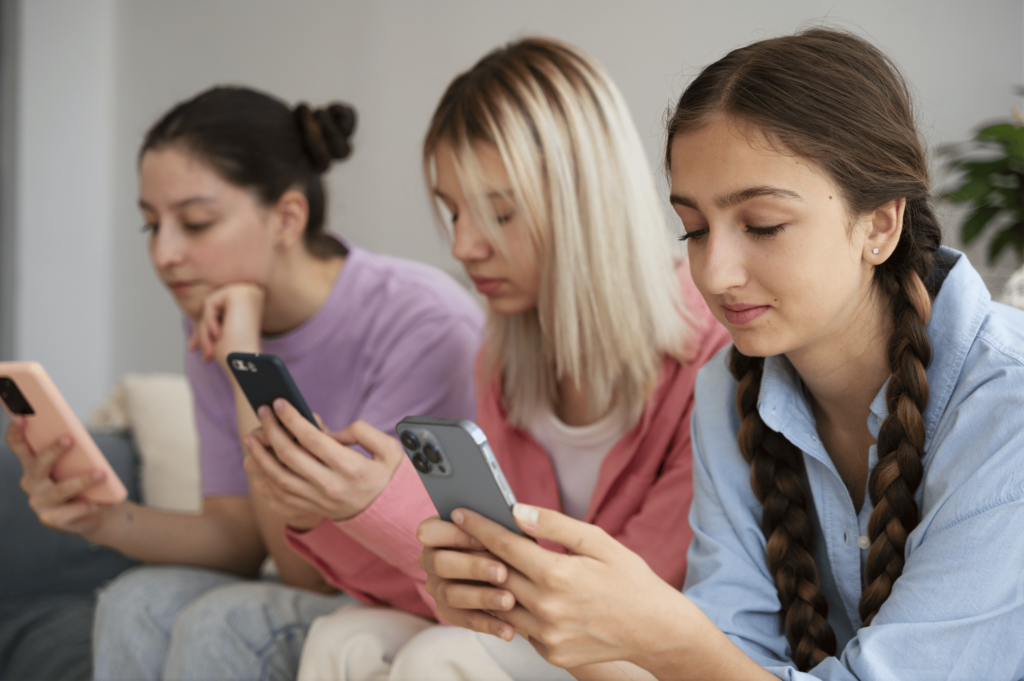
Tips for Teenagers to Use Social Media Safely
Social media has become an essential component of every teen’s life in the current digital era. Even though it has many positive aspects, it’s essential to use it wisely and safely. Being cautious can make an immense impact when it comes to maintaining privacy and avoiding online risks. Teenagers may use social media more responsibly and safely by following these valuable suggestions:
- Set Boundaries: Define restrictions for using social media. Set a limit each day for how much time you spend online and maintain it to avoid overuse and keep up a healthy, balanced routine.
- Be Authentic: On social media, be authentic and genuine. Sharing your own views and knowledge instead of pretending as someone else or chasing likes promotes trust and allows you to engage with others on an authentic level.
- Take Breaks: Ignore social media on a regular basis. Taking a break enables you to unwind, rejuvenate, and concentrate on practical activities that enhance your mental and emotional wellbeing.
- Protect Your Privacy: Avoid sharing private information on social media, especially your address, phone number, school information, and passwords. Check your privacy settings and allow access to only those who you can trust.
- Think Before you Post: Prior to sharing any image, comment, or post, give it a little thought. What is amusing now may have serious consequences afterwards. Each post leaves a digital record.
- Avoid Talking to Strangers: Stay clear of chatting with strangers. Ignoring scams and online predators is safe, as opposed to fake accounts or unforeseen messages.
- Report and Block Unsafe Content: Report and block the user if you come upon offensive, risky, or abusive content. Each and every platform includes these features.
- Communicate with a Trusted Adult: Get in contact with a trusted adult immediately, such as your parents or teachers, if a post or message makes you feel nervous. You can learn from their guidance at times of difficulty.
“Social media is a reflection of our lives, but it shouldn’t dictate our lives.” – Unknown
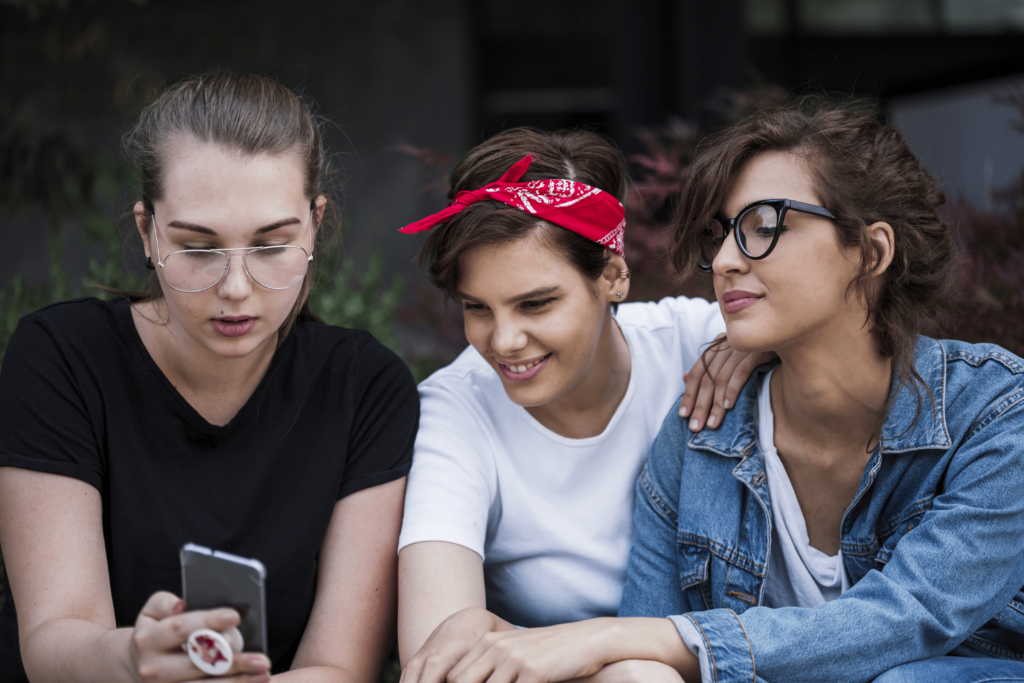
Conclusion
For teenagers, social media is a technology that may have positive as well as negative consequences. While technological advances offer opportunities for connection, learning, and creativity, they also pose risks such as addiction, low self-esteem, and mental health challenges. Teenagers have to therefore understand the consequences, preserve knowledge of their use, and establish safe, healthy habits when accessing social media in their daily lives.
“Social media is a tool, and like any tool, it can be used for good or bad. It’s up to us to use it wisely.” – Preston Smalley
